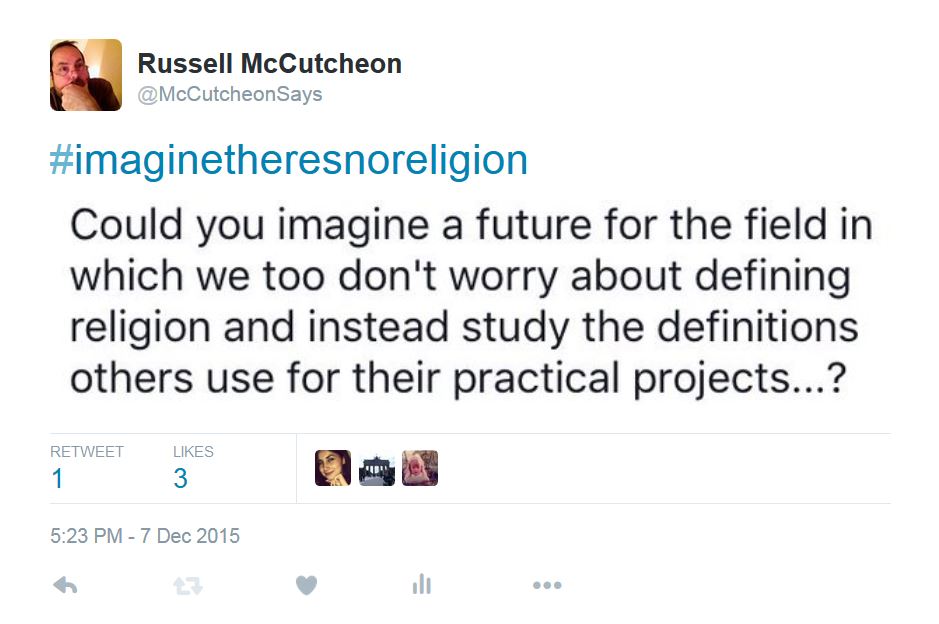 I had the good fortune the other week to do a virtual class visit, via Skype, with Brad Stoddard’s students at McDaniel College. To get things going, one of his students asked me a question; given that they’d read a little of an intro book I wrote, that’s concerned with issues surrounding defining religion, it concerned how I define religion. Continue reading “What’s Your Definition of Religion?”
I had the good fortune the other week to do a virtual class visit, via Skype, with Brad Stoddard’s students at McDaniel College. To get things going, one of his students asked me a question; given that they’d read a little of an intro book I wrote, that’s concerned with issues surrounding defining religion, it concerned how I define religion. Continue reading “What’s Your Definition of Religion?”
Opening Gambit
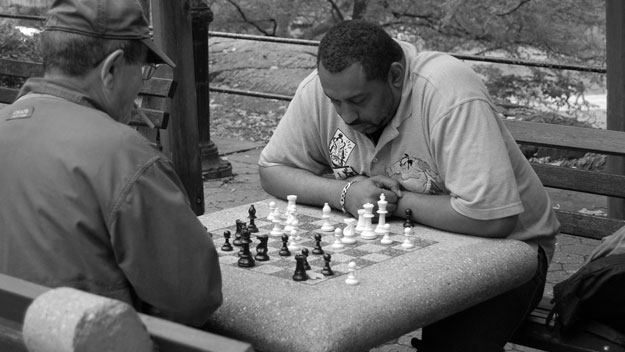 Another semester is drawing to an end and, as a result, I’ve been having some meetings with students who wish to go over the course material so that they can better prepare for the final. Not long ago a student came by and, as the meeting was starting, I asked a question that I often pose to students who stop by to talk, those who might be having some difficulties in the course.
Another semester is drawing to an end and, as a result, I’ve been having some meetings with students who wish to go over the course material so that they can better prepare for the final. Not long ago a student came by and, as the meeting was starting, I asked a question that I often pose to students who stop by to talk, those who might be having some difficulties in the course.
So I say:
What did you think of the course?
You Are What You Read, with Craig Martin (Part 2)

For a new Culture on the Edge series “You Are What You Read” we’re asking each member to answer a series of questions about books — either academic or non-academic — that have been important or influential on us.
2. Name one of your favorite theory books.
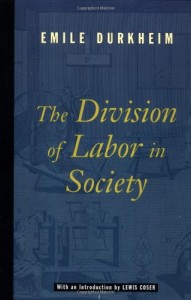 While I’m tempted to name one of my favorites by Althusser, Derrida, Foucault, Bourdieu, or Butler, I think I’ll go with Durkheim’s The Division of Labor in Society. While Elementary Forms seems to be everyone’s favorite in religious studies, I have a strong preference for Division of Labor. In Division of Labor we see the best and worst of Durkheim all at once: sometimes rigorous and sometimes sloppy in his argumentation, he delivers a devastating blow to methodological individualism, he shows how culture is fundamentally related to society or social structure, but — although he frequently departs from the self-serving views of his contemporaries — he speaks freely of “primitive savages” across the globe and ratifies a certain brand of European ethnocentrism. I love teaching Division of Labor because I get to show students a brilliant mind whose views deserve continual consideration yet not always acceptance. Every lecture turns out to be a love letter of sorts to Durkheim, but with a love that resists romaniticizing him and instead loves him despite his flaws.
While I’m tempted to name one of my favorites by Althusser, Derrida, Foucault, Bourdieu, or Butler, I think I’ll go with Durkheim’s The Division of Labor in Society. While Elementary Forms seems to be everyone’s favorite in religious studies, I have a strong preference for Division of Labor. In Division of Labor we see the best and worst of Durkheim all at once: sometimes rigorous and sometimes sloppy in his argumentation, he delivers a devastating blow to methodological individualism, he shows how culture is fundamentally related to society or social structure, but — although he frequently departs from the self-serving views of his contemporaries — he speaks freely of “primitive savages” across the globe and ratifies a certain brand of European ethnocentrism. I love teaching Division of Labor because I get to show students a brilliant mind whose views deserve continual consideration yet not always acceptance. Every lecture turns out to be a love letter of sorts to Durkheim, but with a love that resists romaniticizing him and instead loves him despite his flaws.
Plus, I hate methodological individualism, so there’s that. Continue reading “You Are What You Read, with Craig Martin (Part 2)”
It Makes a World of Difference
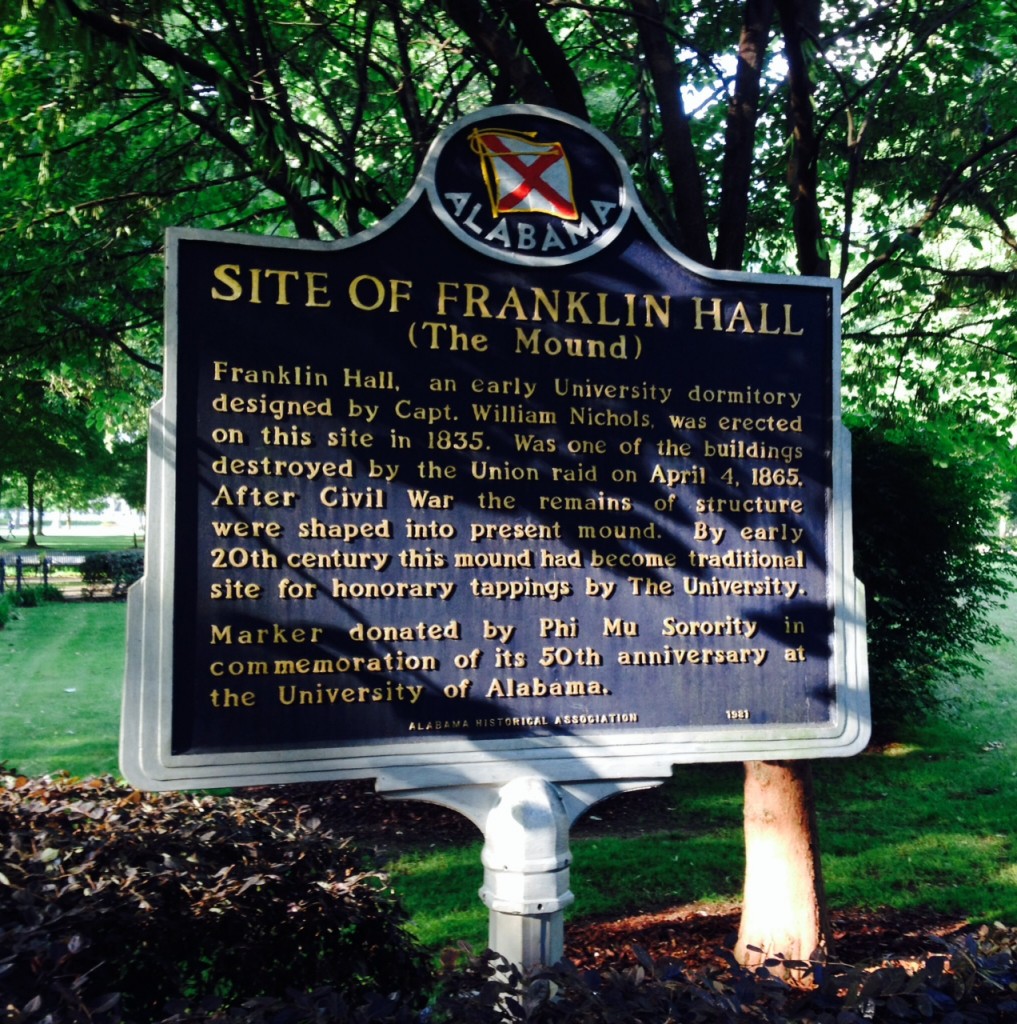 We’ve got a well-known sacred spot at the University of Alabama. No, not our famed football stadium but, instead, where relics are buried from an earlier version of campus, the time of origins when the ancestors walked the earth — back when it was burned down by Union troops coming through Tuscaloosa, on April 4, 1865, within just days of the Confederacy’s famed General Robert E. Lee’s surrender to the Union’s equally famed General Ulysses S. Grant, at the Appomattox county court house, in central Virgina. Continue reading “It Makes a World of Difference”
We’ve got a well-known sacred spot at the University of Alabama. No, not our famed football stadium but, instead, where relics are buried from an earlier version of campus, the time of origins when the ancestors walked the earth — back when it was burned down by Union troops coming through Tuscaloosa, on April 4, 1865, within just days of the Confederacy’s famed General Robert E. Lee’s surrender to the Union’s equally famed General Ulysses S. Grant, at the Appomattox county court house, in central Virgina. Continue reading “It Makes a World of Difference”
WWDS?
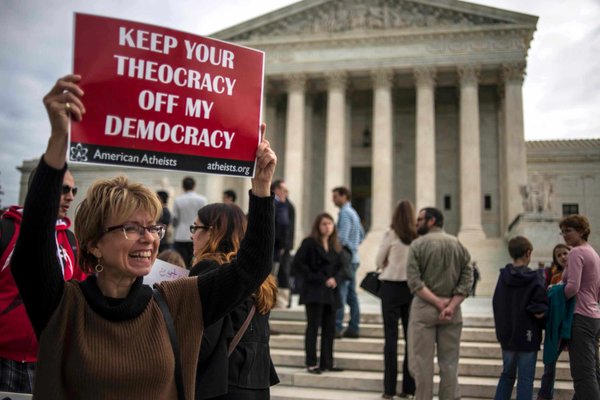 Perhaps you’ve caught the news about a recent Supreme court decision in the U.S. in which (by a slim, but sufficient, 5-4 majority) local town meetings that begin with prayer were held to be constitutional — so long as religions were not actively excluded from the opportunity. The majority (read the decision, and various commentaries, for yourself here, linked under “Opinion”) concluded:
Perhaps you’ve caught the news about a recent Supreme court decision in the U.S. in which (by a slim, but sufficient, 5-4 majority) local town meetings that begin with prayer were held to be constitutional — so long as religions were not actively excluded from the opportunity. The majority (read the decision, and various commentaries, for yourself here, linked under “Opinion”) concluded:
All that the Court does today is to allow a town to follow a practice that we have previously held is permissible for Congress and state legislatures.
Here? No Evil
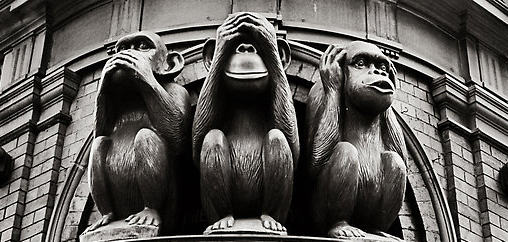 I found an image, not long ago, while hunting around for something new for Facebook, in which three silhouettes gestured the proverbial “three wise monkeys” poses, with the words “the sacred and the profane” written across it. Mulling it over, it seemed to be a rather useful way into the problem of how those technical terms are used by scholars of religion. Continue reading “Here? No Evil”
I found an image, not long ago, while hunting around for something new for Facebook, in which three silhouettes gestured the proverbial “three wise monkeys” poses, with the words “the sacred and the profane” written across it. Mulling it over, it seemed to be a rather useful way into the problem of how those technical terms are used by scholars of religion. Continue reading “Here? No Evil”
On Memorials
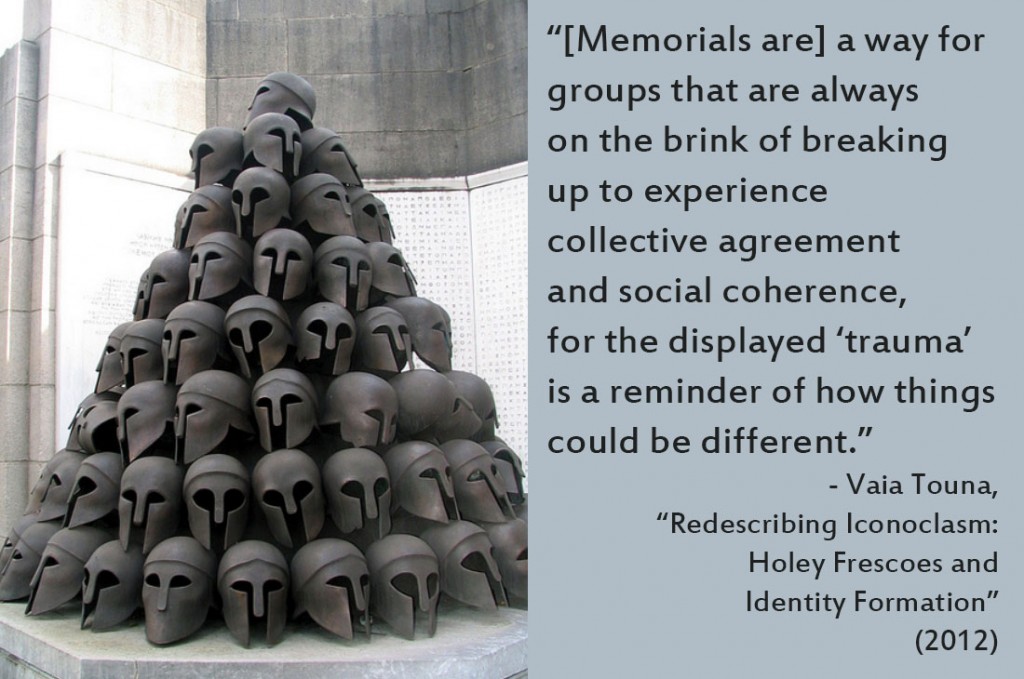 Learn more.
Learn more.
“I’m Rubber, You’re Glue…”
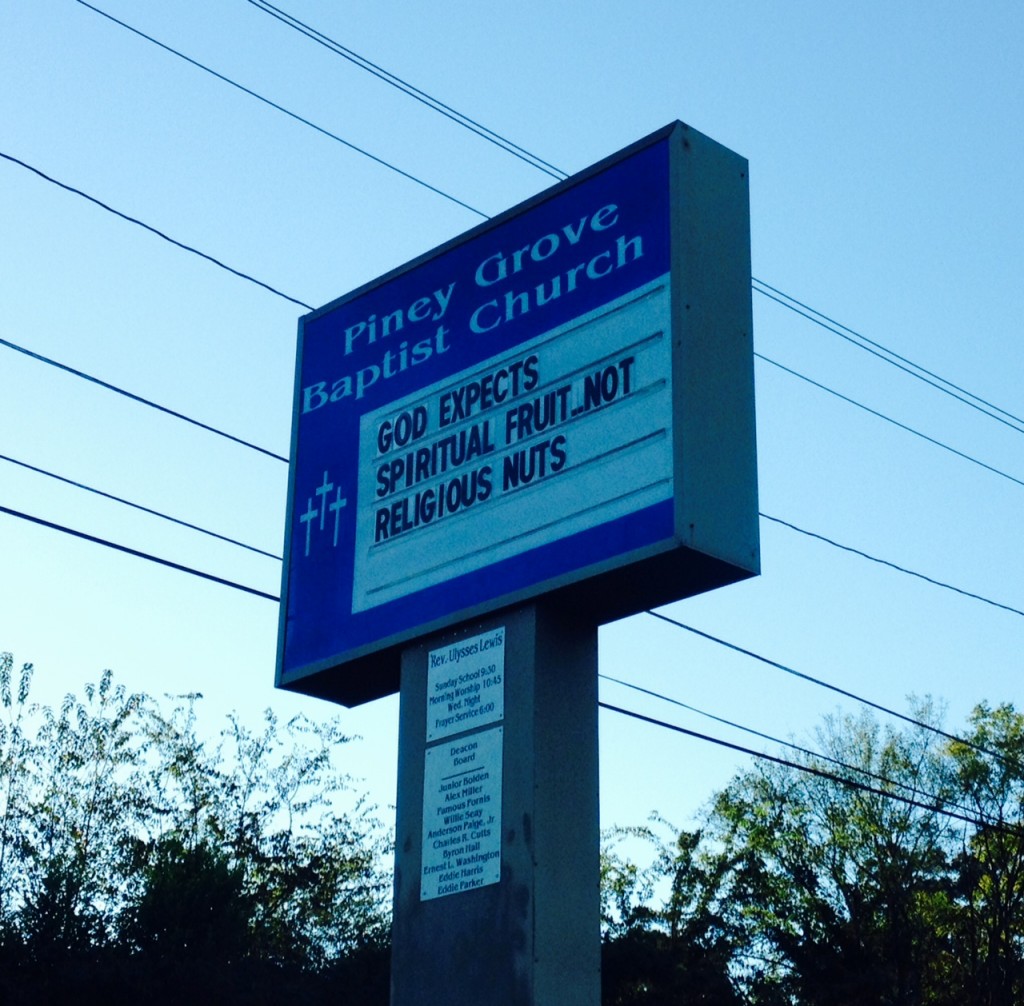 If only scholars of religion understood what the good people of Piney Grove Baptist Church apparently do: the words “spiritual” and “religious” refer to nothing but each other, making them handy rhetorical terms that help to create/legitimize conditions of affinity and estrangement.
If only scholars of religion understood what the good people of Piney Grove Baptist Church apparently do: the words “spiritual” and “religious” refer to nothing but each other, making them handy rhetorical terms that help to create/legitimize conditions of affinity and estrangement.
So my advice is to go re-read your Durkheim — god-talk is group-talk — and quit trying to figure out the trick to defining each of these words in the right way, as if one names something in the world that’s uniquely different from what the other names. Instead, start seeing them as rather less ethereal than many do, as equivalent to kids in the schoolyard sorting out issues of rank and place by calling each other names — all-purpose names that, sooner or later, bounce off me and stick to you.
On Groups
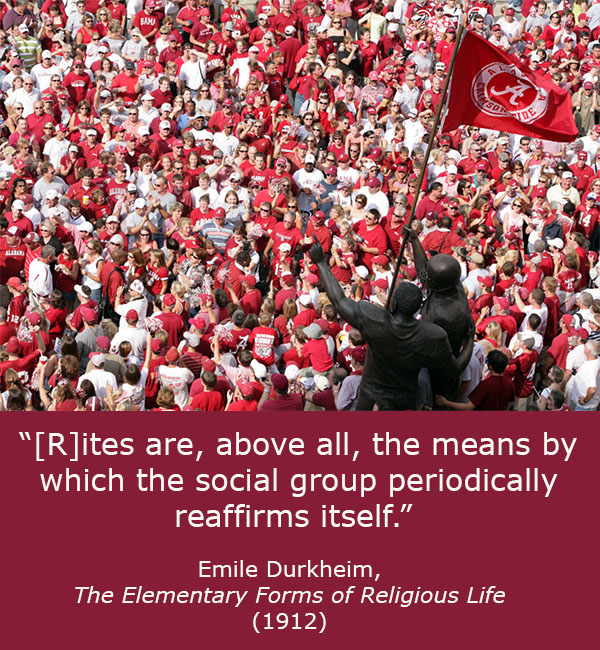 Read more.
Read more.
On Images
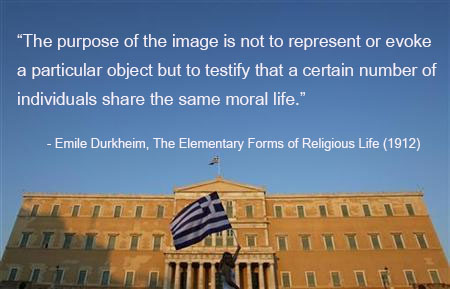 Read more.
Read more.
